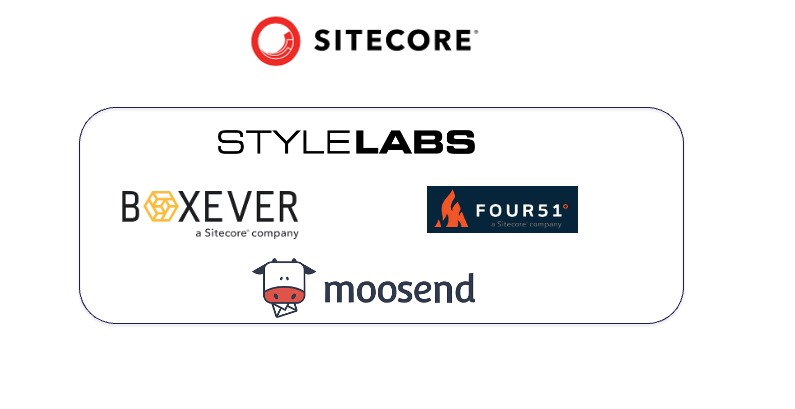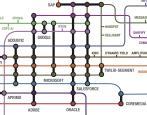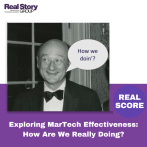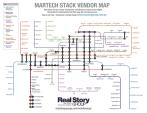What to Make of Sitecore's Moosend Acquisition
Last week Sitecore announced its plan to acquire Moosend. UK-based Moosend provides very low-priced, SaaS-based email marketing services. Its main capabilities include lightweight B2C campaigns, landing pages, and newsletters.
A Brief History of Sitecore’s Acquisitions
This marks the continuation of a fraught transition at Sitecore. Let's start at the beginning, Sitecore’s original offering, now called Sitecore XP also bundled several services including:
- Customer Data Management (via proprietary XDB store)
- Personalization
- Campaign Management
- A/B testing
- Marketing Automation
- Some related services, including ecommerce
These are all an on-premise or single-tenant, managed cloud offerings. They were mostly sold as a bundle, but this was always awkward, and many of the non-WCM components never got lit up in a typical Sitecore implementation.
Sitecore now appears to be replacing these with SaaS-based offerings.
The key acquisitions, so far have been Stylelabs in 2018, followed by Boxever and Four51 this March, and now Moosend.
Recall that Stylelabs (now called Sitecore Content Hub) is a SaaS-based content platform. Similarly:
- Boxever provides SaaS-based CDP capabilities along with personalization, journey management and other experience-oriented capabilities
- Four51 sells SaaS-based e-commerce
- Moosend is SaaS-based email marketing service

More recently comes word that Sitecore is building a new, SaaS-based WCM off the Content Hub base to replace it's long-standing, single-tenant flagship solution.
The strategy as a whole makes sense, but represents a huge make-over for the vendor. As usual, RSG doesn't care about the vendor, but we do care (a lot!) about you, so let's examine the consequences.
What Does It Mean for Integrators
Sitecore grew in part on the back of a very strong partner network. The vendor’s complex, .Net-based CMS made it very partner-friendly. Numerous agencies, system integrators and partners provided expertise but also tended to recommend Sitecore to their clients. This worked well for Sitecore (increased license revenues) as well as for partners since the customers would become heavily dependent on customizations, integrations, on-going support, and managed services.
The switch to SaaS-based models and related promises such low-code customizations and packaged integrations mean less work for partners. In the short-term, partners will probably have enough work to support legacy clients. In the longer-term, the customer-partner-vendor triad is going to change profoundly here.
What Does It Mean for Customers
For customers this is going to get very messy, with divergent architectural models, development patterns, API sets, and wildly different tiers of sophistication across the suite. This could be worse even than Salesforce in that regard.
Moreover, licensees will need to navigate functional overlaps across these acquired services. Consider, for example:
- Sitecore acquired Boxever for its CDP capabilities. (I’d argue it’s more of an engagement platform and less of a data management platform but that’s a separate post); Boxever provides some CDP capabilities for profile unification and segmentation along with Decisioning for creating journeys and decisions along with capabilities to trigger experiences on websites and other channels
- Moosend (which is more like a lower-end ESP akin to Mailchimp, though even cheaper) provides landing pages, email newsletters, personalization and light workflows for campaign management
There’s considerable overlap in capabilities there, with both of them offering their own data ingestion, segmentation, and campaign management capabilities. Any rationalization of these overlaps will take time, if at all.
Still, the real story here is that the Sitecore we all know now appears to be going away. Current and prospective licensees will need to adjust accordingly. Until then, if you need these capabilities, evaluate them on their own merit and not because they are all now part of Sitecore. Or look at these alternatives.








